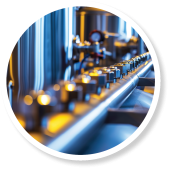https://doi.org/10.15255/KUI.2025.018
Published: Kem. Ind. 74 (11-12) (2025) 497–505
Paper reference number: KUI-18/2025
Paper type: Original scientific paper
Download paper:  PDF
PDF

Leveraging Causal AI Models for Enhanced Process Control in Food Production: A Case Study on Beer Fermentation Quality
Ž. Kurtanjek
Abstract
Reproducible Kernel Hilbert Space (RKHS)-based methodologies are applied for Digital Twins (DT) modelling and causal analysis of the beer fermentation process. The model accounts for the key process variables (temperature, biomass, sugar, ethanol, and carbon dioxide) along with online beer quality monitoring through the concentration of diketones (VDK). The modelling dataset is based on integration of 10 fermentation profiles with the perturbed initial conditions. The focus is on de-confounding process data multicollinearity for development of a DT model with intervention potential aimed for optimising beer quality. The results are graphically presented as a Directed Acyclic Graph (DAG). Based on the DAG structure, a Bayesian Neural Network (BNN) is applied for the graphical presentation of probability density functions of non-linear dependencies of beer quality on the key causal process variables. In addition to the intervention potential of causal DT models, the potential use of counterfactual analysis in causal digital twin model is emphasised for improving process control and possible innovations of new products.

This work is licensed under a Creative Commons Attribution 4.0 International License
Keywords
BCN Bayes causal network, BIC Bayes information criteria, RKHS reproducible kernel Hilbert space, DAG directed acyclic graph, Digital Twins, beer quality









